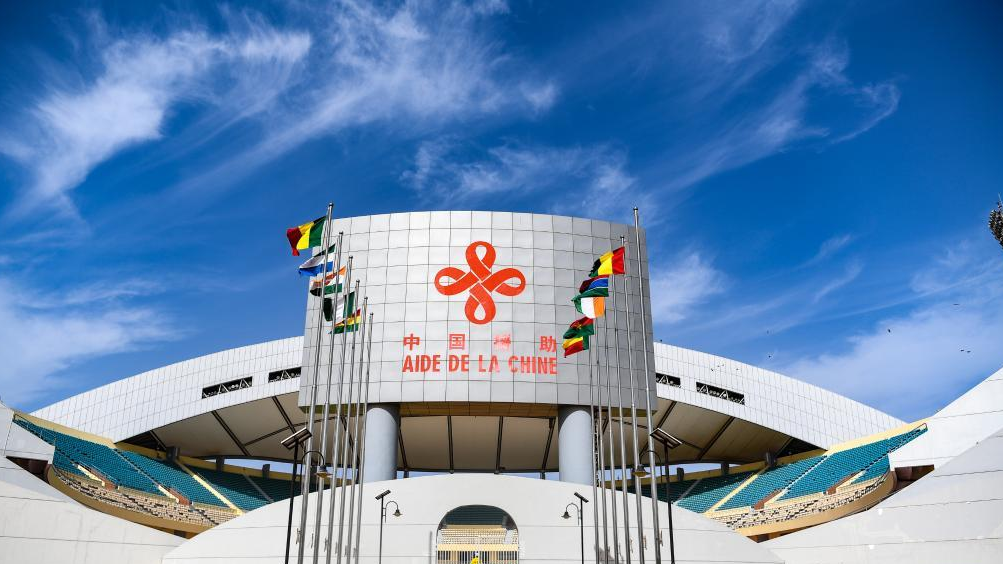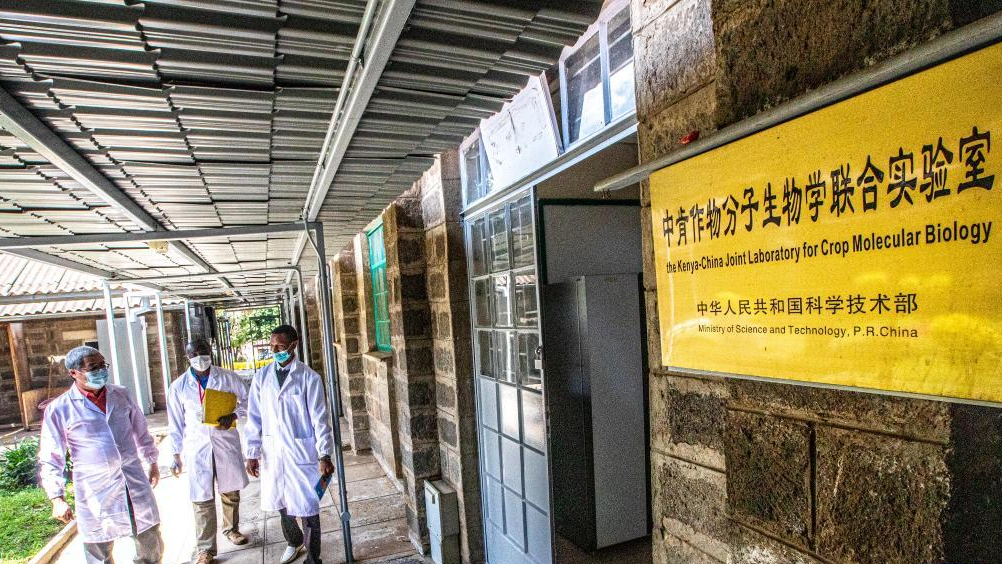
The exterior view of the Chinese-built National Wrestling Arena in Dakar, Senegal, November 21, 2021. /Xinhua
The exterior view of the Chinese-built National Wrestling Arena in Dakar, Senegal, November 21, 2021. /Xinhua
Editor's note: Stephen Ndegwa is a Nairobi-based communication expert, lecturer-scholar at the United States International University-Africa, author and international affairs columnist. The article reflects the author's opinions and not necessarily the views of CGTN.
The eighth edition of the Forum on China-Africa Cooperation (FOCAC) will be held in Dakar, Senegal, from November 29 to 30. The forums theme is "Deepen China-Africa Partnership and Promote Sustainable Development to Build a China-Africa Community with a Shared Future in the New Era."
This theme is based on "Xi Jinping Thought on Socialism with Chinese Characteristics for a New Era," which works toward reaching a horizon of mankind's shared destiny through genuine multilateralism. Indeed, the world's destiny is intertwined with that of the African continent.
Sino-African relations are a historical fact dating back to the 15th century when the famous Chinese admiral and seafarer Zheng He brought a wall painting of a giraffe to the Nanjing court after one of his expeditions to the east coast of Africa between 1413 and 1419. It is this seed of a friendship that has been germinating over the years.
Now, experts see post COVID-19 economic recovery as one of the top priorities during FOCAC. China has been the continent's friend in need during the two-year period that the pandemic has taken its toll. China has delivered more vaccines to Africa than any other country both unilaterally and through COVAX. The latter is a global multi-agency initiative aimed at ensuring fair and equitable access of COVID-19 vaccines particularly in developing countries.
China's humanitarian assistance to Africa is also growing every year. On November 22, for instance, the country donated relief food consisting of 945 tonnes of rice to help 2.5 million Kenyans affected by a devastating drought in half of the country's 47 counties. This is the seventh such assistance since 2017 after China committed to donate a total of 11,835 tonnes of rice worth an estimated $20 million.

Liu Gaoqiong, a professor from Nanjing Agricultural University, talks to his Kenyan colleagues at the Kenya-China Joint Laboratory for Crop Molecular Biology in Egerton University's Confucius Institute, Nakuru, Kenya, June 25, 2021. /Xinhua
Liu Gaoqiong, a professor from Nanjing Agricultural University, talks to his Kenyan colleagues at the Kenya-China Joint Laboratory for Crop Molecular Biology in Egerton University's Confucius Institute, Nakuru, Kenya, June 25, 2021. /Xinhua
In Zambia, Chinese enterprises are actually employing rather than downsizing staff amid the challenges posed by COVID-19. The new recruitment drive organized under the Zambia Confucius Institute is a factor of the high levels of foreign direct investment by Chinese firms in the country. This is definitely a rare development even in developed countries whose companies are still struggling to recover.
Now, these initiatives are true to Xi's promise in his address during the Extraordinary China-Africa Summit on Solidarity Against COVID-19 in June 2020, where he promised that China would support the continent not just in the response to COVID-19, but in also meeting other commitments made over the cooperation period.
So, what does the future hold for Sino-African relations? Fortunately, the pandemic has fired up rather than cooled down the partnership. There is renewed commitment to add more value to every aspect of the relationship after the realization that overcoming challenges has actually formed the strong foundation of the current resilience.
But the main action is obviously at the multilateral level, starting with Africa's vision as stated in the Africa Union's Agenda 2063 that seeks to transform the continent into a global powerhouse through inclusive and sustainable development. The long-term development trajectory of this blueprint reflects China's development temperament that believes and relies on the scientific process rather than attempts at quick fixing challenges.
Almost by design, Agenda 2063's flagship projects reflect FOCAC's pillars. These are wide-ranging sectors in the areas of infrastructure, science and technology, education as well as arts and culture. Specifically, Sino-African cooperation has experienced the conception, emergence and realization of a number of major initiatives, some of these together with other African partners. These include the 10 major cooperation programs envisioned by President Xi during the FOCAC Johannesburg Summit in December 2015 – agricultural modernization, infrastructure, finance, green development, trade and investment facilitation, poverty reduction, public health, cultural and people-to-people exchanges, and peace and security.
Of course, there is a lot of work that needs to be done in several areas, which are issues expected to be tabled during the forthcoming meeting. In light of the new realities from the pandemic, there will be need for readjustments either at policy or operational levels. For instance, some timelines will have to be pushed further and funding increased as the case may be. Moreover, the current circumstances potentially offer new opportunities in socio-economic cooperation, like the joint construction of COVID-19 vaccine manufacturing firms in countries like Egypt, Morocco and Algeria.
The Belt and Road Initiative will also be crucial in recovery efforts focusing on areas of trade and finance, value addition in agriculture, infrastructural connectivity, ecological civilization, and tourism, cultural, social and educational exchanges.
Conspiracy theories constantly bandied by the West about China's ignoble designs in Africa have failed to dampen the winning spirit of the two kindred souls. The two sides are now widening the scope of mutual understanding through engagement in intangible areas, particularly arts and culture.
For at least two decades, according to the Chinese Foreign Ministry, China and 45 African countries have entered into no less than 62 inter-governmental agreements on various forms of cultural exchanges. In addition, the partners have organized more than 200 cultural exchange delegations in culture and arts. There has also been longstanding cooperation in media, cinema and training.
(If you want to contribute and have specific expertise, please contact us at opinions@cgtn.com.)

